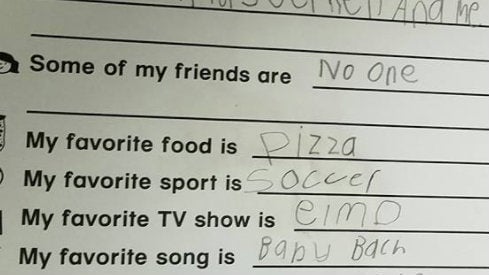A father’s emotional plea shows how parents can help fight the isolation of autism
Every parent has that moment when they realize their kid is having friend issues. Maybe your son was left out of a play date, or your daughter wasn’t invited to a sleepover. It sucks, but you chalk it up to building resilience (and secretly hate the kid who left your child out).


Every parent has that moment when they realize their kid is having friend issues. Maybe your son was left out of a play date, or your daughter wasn’t invited to a sleepover. It sucks, but you chalk it up to building resilience (and secretly hate the kid who left your child out).
Now imagine you had a child who was on the autistic spectrum, who struggled to make friends. And then imagine that the “friend” issue happened every day of every year for 11 years.
Bob Cornelius doesn’t have to imagine, he lived it with his son Christopher, who is 11 and on the autistic spectrum. The “friend” issue came into sharp focus recently, after Cornelius attended a back-to-school night. Cornelius had snapped a photo of Christopher’s latest project, but didn’t read it closely until after he got home. What Christopher wrote broke his heart.
Aside from listing his favorite food (pizza), and his favorite sport (soccer) and noting what he wants to be when he grows up (teacher), Christopher was asked to list “some of my friends.”
His response? “No one.”
Cornelius’s post is worth reading. It is beautiful and sad, and a great reminder to parents that we have a duty to explain to our kids what difference looks like and to remind them how far a little empathy might go. Here’s one passage:
“The only solution I can come up with is to share this with you and ask that you have a conversation with your kids. Please tell them that children with special needs understand far more than we give them credit for. They notice when others exclude them. They notice when they are teased behind their back (a lot of times “behind their back” is right in front of them because they think the ‘different’ child doesn’t understand). But mostly they are very much in tune when they are treated differently from everyone else. Trust me when I tell you this hurts them. Even if it’s not obvious to you and me.”
Sesame Street announced this week that it will be introducing a puppet named Julia who has autism. The move was lauded by autism groups, and by friends and relatives of children with autism.
Both Julia and Christopher are useful reminders not to postpone that conversation until the “right” moment. That moment is now.